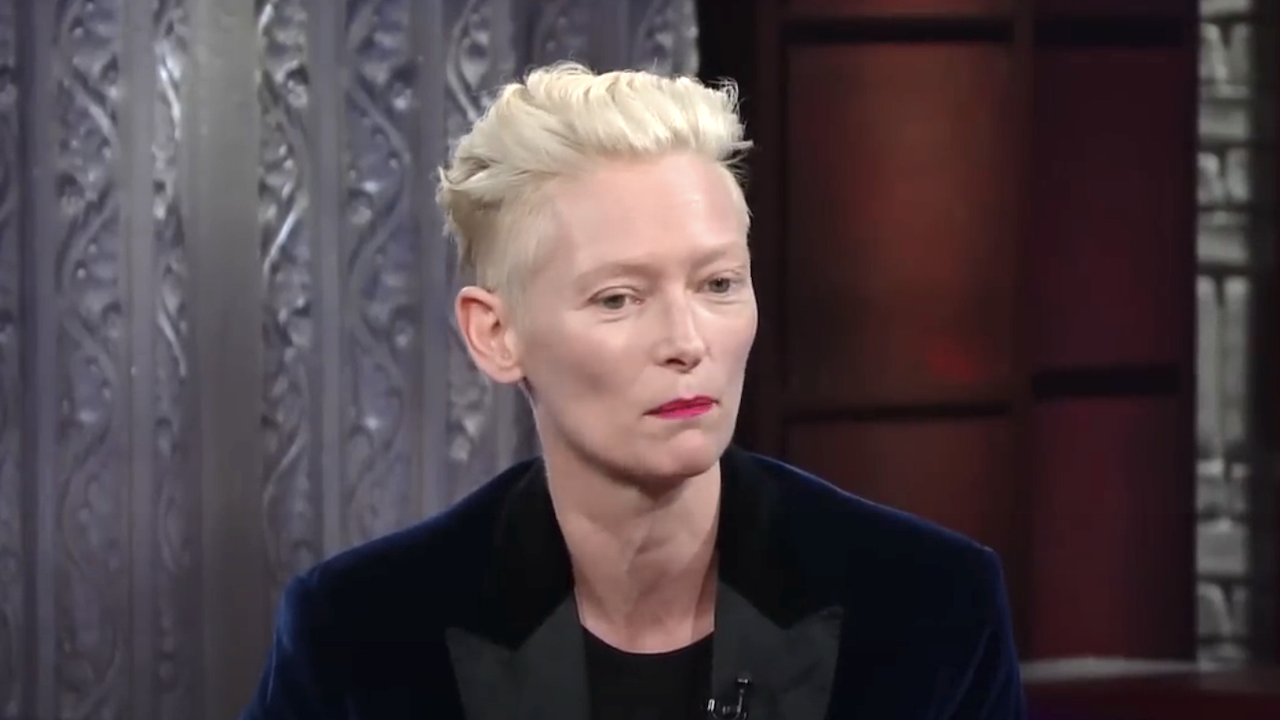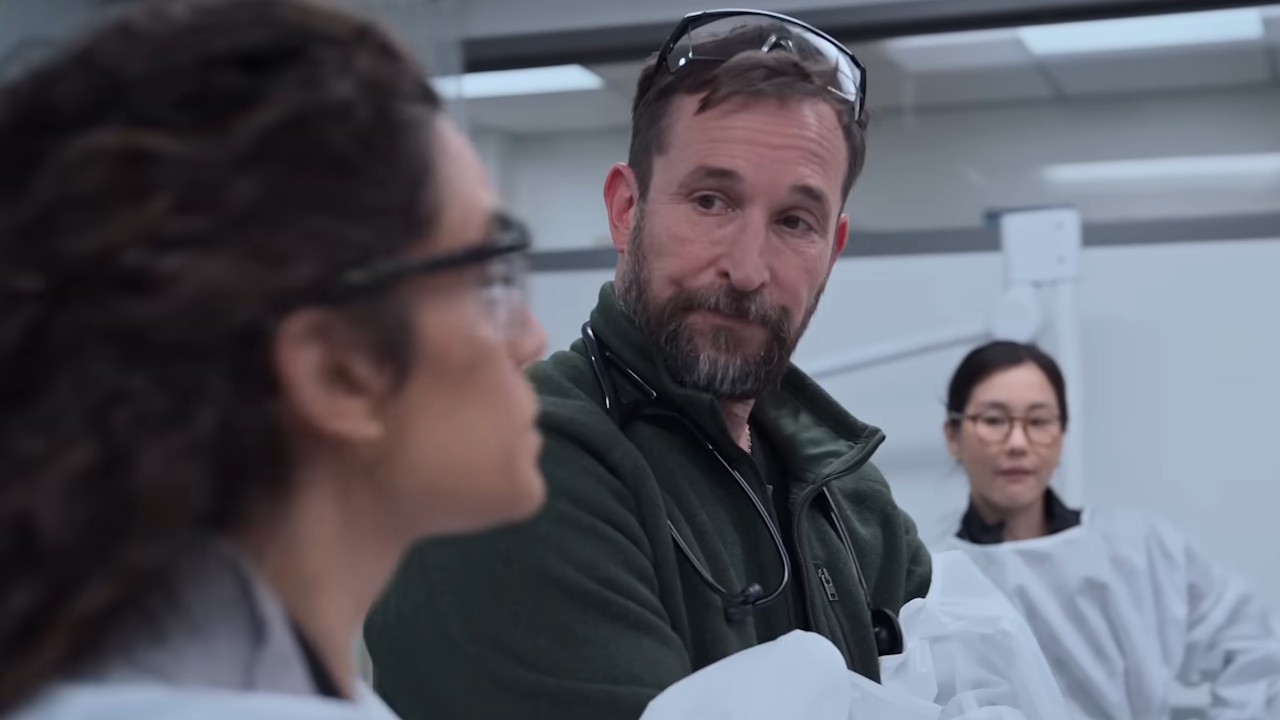Interview: Tilda Swinton

Tilda Swinton has built an impressive resume of taking on unconventional or downright weird movie roles, from her early work in Orlando to even the spooky White Wtich in The Chronicles of Narnia. But after she won an Oscar for Michael Clayton, the world was open to her, and she could have taken on any big-budget character study or action movie role she wanted.
Instead, she made Julia, an extremely low-budget indie that's the first film in 10 years for French director Erick Zonca. Swinton stars at the title character, a Los Angeles alcoholic adrift in a meaningless life and motivated only by money and alcohol. When an acquaintance hatches a scheme to kidnap back her own son, Julia gets involved and takes matters into her own, unqualified hands, kidnapping the kid, attempting murder on a man and taking off to Mexico. Slowly Julia and the child (Aidan Quinn) develop a relationship and even learn to care for each other, but Julia takes a lot more unconventional turns than you would expect from a typical story about an alcoholic learning to live her life.
We talked to Swinton at a roundtable interview about her rough, often unlikeable character, the challenges of shooting with nearly no money in a desert, and how making this movie is essentially cashing in on her post-Oscar success. Julia opens in limited release today.
What was it about this character that made you have to do the film?
As usual, it was principally the filmmaker. Although in this case it was a strange serendipity. I had always had a fantasy. I'd always wanted to play an alcoholic who was as energetic and fancy-filled and fun as most of the drunks I know. It so happened that [director Erick] Zonca came up with this character, who was pretty close to the person I had been visualizing. He has exactly what I call an amoral compassion for this kind of portrait. He was perfect and un-ignorable.
What type of research did you do?
I've known a lot of drunks for 20 years! That's it, literally.
Your Daily Blend of Entertainment News
You're not a drinker yourself, right?
I've tried, but it doesn't work. When we came to do the drunk stuff, I was a little apprehensive. If I drink, I go to sleep. But I realized that it came quite easily to me. The truth is I had been pretending to be drunk for 20 years, with my true drunk friends. It was relatively easy.
This film seems to have been very emotionally and physically demanding.
It was mainly physically demanding for two reasons. Firstly, because I had to kind of build a different body for myself, and I had to fling myself about quite a bit. I got very sore. And I had to chain smoke, which makes me feel pretty sick all the time. But it was mainly physically demanding because we had our budget cut quite substantially about a month before we started shooting. So we shot for probably twice as many hours a day as he would have liked, and we had no days off. It was a grueling shoot.
Was it dangerous shooting in Mexico City?
It's dangerous shooting there with Zonca, in Mexico City. He's not immune to saying "Tilda, you're going into traffic now, action!" You think, "Aren't you supposed to have stunt drivers for this type of thing?" That was all dangerous. But Mexico City, no. I didn't feel that it was dangerous.
A lot of times when people win an Oscar they tend to cash in and do a big budget movie.
This is me cashing in.
Was it tough to resist that temptation?
As I said, this is me cashing in. I'm not joking. This is me going, this is the film I wanted to do. The truth is we actually did it before the Michael Clayton business. The fact that you're in this room might have something to do with me winning an Oscar. I'm very grateful for that. You might not have come to talk to me about this film if i hadn't, I don't know. This is my constituency, this is the kind of filmmaking that I'm permanently involved in.
Was there a lot of improvisation with the child actor?
You know, we didn't actually improvise at all. That was another task that we set ourselves, for the film to feel chaotic but be scripted. We wanted the audience not to know what was going to happen next. We didn't improvise, but we did play. Aidan Gould was extraordinary. He was completely up for it, and on a certain level understood the film absolutely, and understood exactly what we were doing with it. We played. But then, you know, when you're 9 you know that it's all dressing up and playing. You maybe know mor than a lot of people of my age. We had a very free relationship. There was a lot of tickling, mutual tickling I have to say. It didn't always end well. He was surprisingly conscious. It all felt very mutual, just as the relationship between Julia and Tom is mutual.
Staff Writer at CinemaBlend

